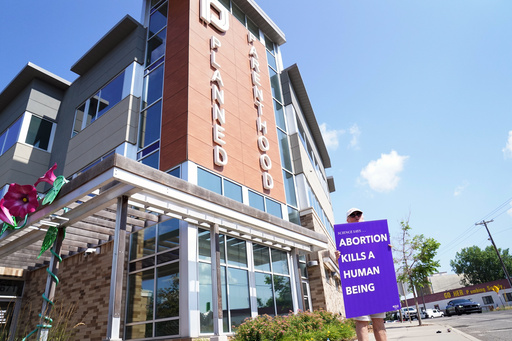
MINNEAPOLIS — The Minneapolis City Council has recently made modifications to a local ordinance that barred the obstruction of entrances and driveways at abortion clinics. This change was prompted by a lawsuit filed by anti-abortion activists who contended that the ordinance infringed upon their free speech rights.
In a discreet move this month, the council adjusted the ordinance to allow for constitutionally protected activities and agreed to cover the legal costs incurred by the plaintiffs. Brian Gibson, the CEO of Pro-Life Action Ministries, expressed that the city’s actions indicated a recognition of having violated constitutional rights. “They were accepting fault for having violated our constitutional rights,” reflected Gibson in a recent interview.
Pro-Life Action Ministries dispatches “sidewalk counselors” to various Planned Parenthood locations, including those in Minneapolis and St. Paul, with the aim of deterring potential patients from undergoing abortions. The ordinance initially established in 2022 was intended to shield individuals attending the Planned Parenthood clinic in the Uptown area from group members who would engage them as they entered the parking lot. Gibson insisted that their activities did not involve blocking entrances but aimed at encouraging patients to converse or receive literature.
Significantly, Minneapolis held the distinction of being the only city within the state with such a regulation. Gibson noted that when they initiated their lawsuit in 2023, their primary goal was to challenge the Minneapolis ordinance, but they also sought to prevent the city of St. Paul—home to a busier Planned Parenthood—from enacting a similar measure, which ultimately did not occur.
A federal court filing last Thursday marked a favorable ruling for Pro-Life Action Ministries alongside three sidewalk counselors. During the past year, multiple activists nationwide have faced convictions under the federal Freedom of Access to Clinic Entrances Act, many receiving lengthy prison sentences for physically obstructing clinic access.
In a city council meeting on December 5, after discussing various topics, the council convened in a closed session to finalize the agreement on covering legal fees. Upon reopening the session, they unanimously decided to exempt “any person or group engaging in conduct protected by the United States Constitution, the Minnesota Constitution or federal or Minnesota law.” While the law remains in effect to prevent physical blockades of clinic entrances, Council Vice President Aisha Chughtai emphasized that the adjustments align with the FACE Act as well.
Chughtai reiterated the council’s commitment to ensuring access to health care, including abortion services, while upholding First Amendment rights. “We also want to be sure to provide very specific carveouts to ensure First Amendment rights are protected and ensure our local authority remains intact,” she stated during the meeting.
Meanwhile, Peter Breen, who heads litigation for the conservative Thomas More Society representing the plaintiffs, characterized the ordinance revision as a considerable win for free speech proponents, affirming that the ordinance’s amendment reinstated their rights. Planned Parenthood North Central States, although not directly involved in the lawsuit, confirmed that the revisions continued to protect patients from obstruction in the driveways and sidewalks.
Breen indicated that they would soon submit a bill for legal fees, estimating costs to be around $600,000. Furthermore, the Thomas More Society and their associates are actively challenging similar regulations across the country. They are seeking to halt a comparable ordinance in Clearwater, Florida, and are contesting similar laws in Westchester County, New York, San Diego, and Detroit, in addition to pursuing a Supreme Court review of an ordinance in Carbondale, Illinois.
Though the Supreme Court previously upheld a Colorado buffer zone during the Hill v. Colorado case in 2000, Breen pointed out that recent rulings, particularly the Dobbs decision that dismantled the constitutional right to abortion, have drawn criticisms of past abortion rulings and their impact on First Amendment interpretations.
Gibson shared that members of his organization have been successful in persuading some individuals visiting clinics to reconsider their abortion decisions. They actively engage outside the St. Paul clinic almost daily and even pray there on closed days. He recounted a recent triumph at the Minneapolis clinic, where a woman chose not to go through with her scheduled appointment after they approached her.
“We had a baby saved,” he stated with pride. “A woman decided not to go through with her abortion appointment.”
